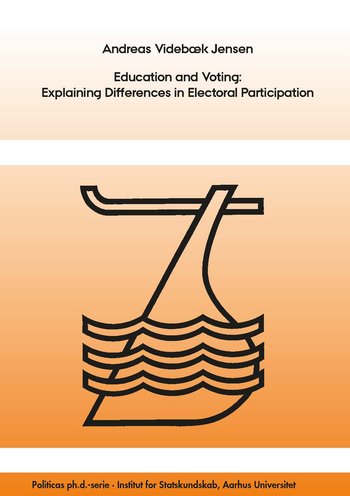Andreas Videbæk Jensen
Education and Voting: Explaining Differences in Electoral Participation

Why are citizens with less education less likely to vote? This recurring pattern is an important problem because it constitutes a political inequality that poses a threat to democratic legitimacy and representation. Conversely, democratic thinkers have long placed great faith in educational institutions’ ability to sustain democracy by increasing students’ political participation. Hence, one explanation for the voting gap between educational groups is that it reflects educational institutions fulfilling their role, i.e. producing good democratic citizens. Alternatively, turnout gaps may stem from pre-adult factors associated with education or from differences in how various educational groups react to contextual influences. This dissertation systematically examines these explanations and provides new perspectives and evidence in four ways: First, by synthesizing prior research with new findings, I show that there is little reason to doubt that attending college education increases voter turnout. Second, using a regression-discontinuity, I find that college field of study (i.e. “what you study”) affects voter turnout, and that exposure to high turnout peers likely explains this link. Third, the dissertation reports how interventions designed to improve political participation may inadvertently widen the turnout gap between education groups. Fourth, the dissertation affirms the political importance of educational turnout gaps by showing that Danish voters prefer political candidates who share their educational background. Thus, turnout inequality may translate in to a political over-representation of highly educated voters. In sum, this dissertation helps us understand the processes that have produced differences in voter turnout and has implications for how to address them.
![]() Ophavsretten tilhører Politica. Materialet må ikke bruges eller distribueres i kommercielt øjemed.
Ophavsretten tilhører Politica. Materialet må ikke bruges eller distribueres i kommercielt øjemed.